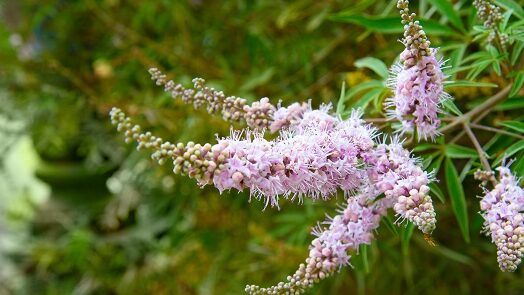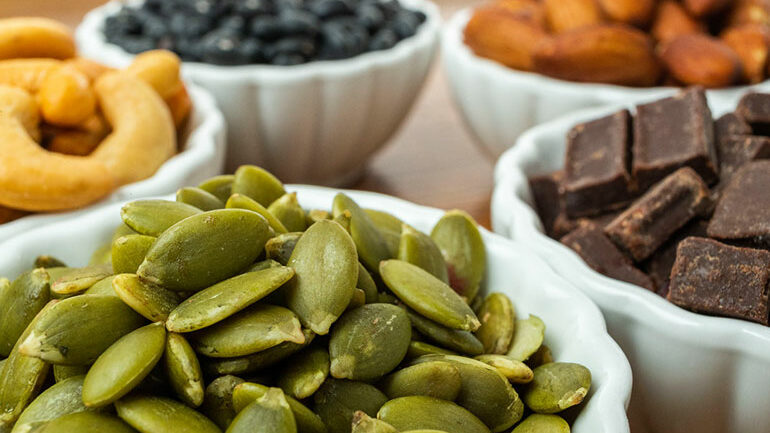
by Samantha Key of Femma, Pharmacist

So you may be familiar with Premenstrual Syndrome (PMS), the physical and emotional changes women experience a few days before your period. Little delights like anxiety, irritability, difficulty concentrating, mood swings, swelling basically everywhere, stomach going haywire and cramps.
PMDD is a severe form of PMS that affects 3-8% of women with PMS. The symptoms are so severe that they can disrupt daily life to the point of some women not being able to maintain a job, greatly reducing their quality of life. PMS will last for a few days before your period whereas PMDD will be ongoing.

Vitex agnus-castus
Vitex agnus-castus is more commonly known as chaste tree and is also known as vitex monk’s berry or chaste berry. It is one of the most commonly used herbs for women’s health. It can help with symptoms of PMDD including headache, constipation, breast tenderness and mood changes. It also has been used to help to regulate menstrual cycles. It works by its action on dopamine receptors to increase dopamine activity to improve mood symptoms. Vitex agnus-castus also lowers prolactin to reduce prolactin-related symptoms including mood, breast tenderness, acne and fluid retention.

Magnesium
Magnesium is a mineral that has many different functions in the body. Magnesium works on the hypothalamic-pituitary-adrenal (HPA) axis to calm the nervous system by reducing cortisol. This can reduce stress and improve some of the emotional symptoms associated with PMDD. It can also help to relieve the pain from menstrual cramps by relaxing the smooth muscle in the uterus. Magnesium is found in nuts, seeds and legumes. A great source of magnesium are pumpkin seeds, 30g contains about 30% of your daily magnesium requirements. There are also magnesium supplements to support a balanced diet. However, not all magnesium is created equal. Some forms of magnesium are poorly absorbed by the body and as such can cause stomach upset. Magnesium oxide is more useful as a laxative rather than to relax muscle. More suitable forms of magnesium for PMDD include magnesium citrate or magnesium glycinate.

Vitamin B6
Vitamin B6 is also known as pyridoxine and exists in two forms pyridoxamine 5’ phosphate (PMP) and pyridoxal 5’ phosphate (PLP). PMP and PLP are both involved in protein metabolism, additionally PLP is involved in carbohydrate and fat metabolism. Metabolic functions allow the body to obtain much needed energy from food as your body requires more energy when menstruating. You burn more calories in the days leading up to your period than any other time in your cycle. Vitamin B6 is mainly found in meat sources including liver, pork, salmon and tuna. It is also found in smaller amounts in leafy greens and legumes. While there are many vitamin B6 supplements available, vitamin Bs are best taken together as a vitamin B complex. Vitamin B2 especially helps with the absorption of vitamin B6 in the body by facilitating the conversion to its active form. It also acts in a similar way to vitamin B9 more commonly known as folate. Vitamin B9 and B12 support the nervous system and B9 in particular helps to maintain dopamine and serotonin levels to improve mood.
References
https://www.sciencedirect.com/topics/medicine-and-dentistry/vitex-agnus-castus
https://www.ncbi.nlm.nih.gov/pmc/articles/PMC6491313/
https://www.racgp.org.au/getattachment/d52b5449-b5ac-44b1-aeaa-8216ad8ad58a/attachment.aspx
https://synapse.koreamed.org/articles/1118309